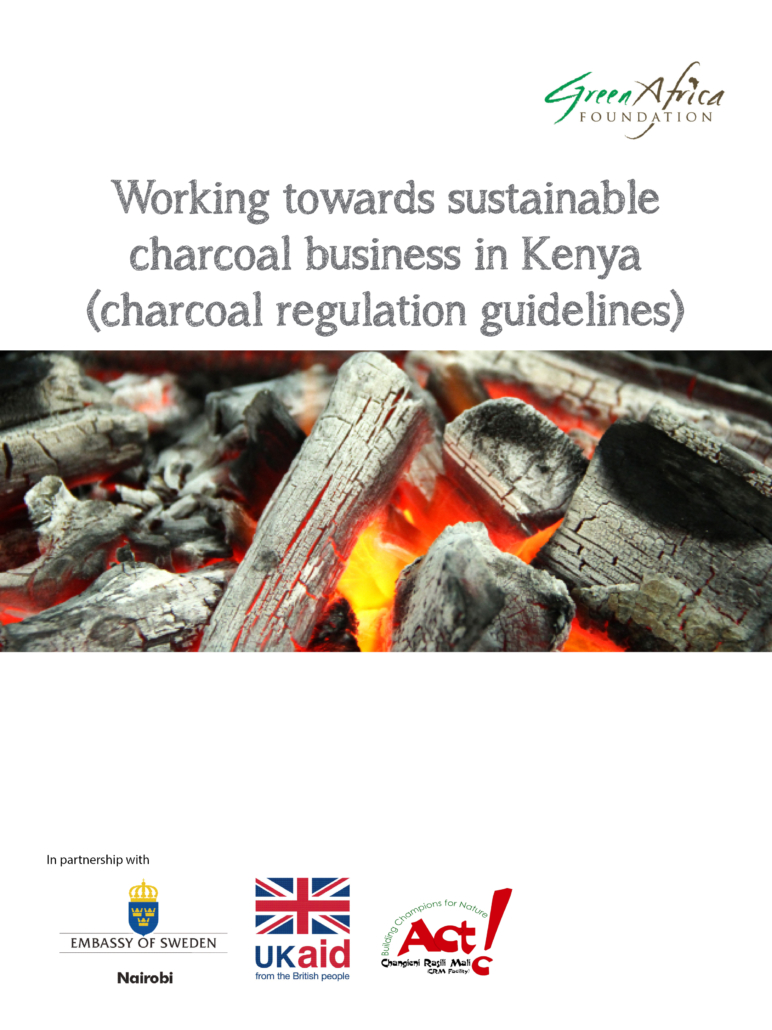Working Towards Sustainable Charcoal Business In Kenya
Select pages from this publication
Summary
Kenya heavily depends on woody biomass. Charcoal is an important fuel, and Kenyans are estimated to consume 2.4 million tonnes of charcoal each year. As the population increases, the charcoal demand also increases. As a result, trees and shrubs are rapidly diminishing due to over-exploitation and poor management, eventually impacting Climate Change.
This publication states that it is vital to have a framework where charcoal stakeholders better understand the regulation, the best choice of trees for charcoal and the market to promote a sustainable charcoal business. This calls for best practices in producing charcoal while minimising costs and environmental degradation while simultaneously maximising profit and achieving sustainability.
This booklet was intended to supplement the brochure on charcoal sustainability and was designed for distribution to a rural audience.
Our brief
Editing
Substantive editing
Proof reading
Photography
Curating photos for the publication
Design
Graphic design
Desktop publishing
Publishing
Print ready PDF
Printed copies
Year of publication: 2013




